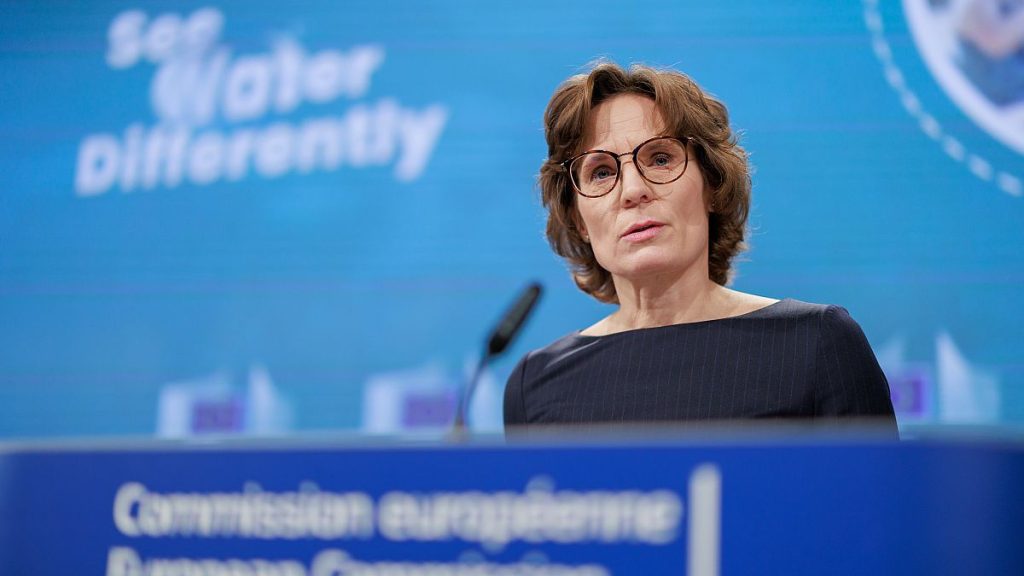The European Commission’s recent assessment of the EU’s water health reveals a concerning disparity between legislative ambition and practical implementation. While the Water Framework, Floods, and Marine Strategy Framework Directives aim to protect and restore Europe’s aquatic ecosystems, the Commission’s report, echoing findings from the European Environment Agency, highlights significant shortcomings in achieving these goals. A mere 37% of Europe’s lakes and rivers meet the required ecological standards, a stark testament to the widespread prevalence of chemical pollution, particularly nitrates, which plague waterways in 17 member states. This “compliance gap” stems from inconsistent transposition of EU directives into national laws and inadequate enforcement by member states, underscoring a chronic challenge in translating European policy into tangible environmental improvements.
Rather than resorting to immediate legal action, the Commission has opted for a collaborative approach. Commissioner Roswall has initiated a “structured dialogue” with each member state, aiming to foster a sense of shared responsibility and generate political momentum for change. This dialogue eschews blame-laying in favor of collective problem-solving, recognizing that addressing Europe’s water crisis requires a unified front. The overarching objective is to shift from a perception of water as an inexhaustible resource to a recognition of its fragility and the urgent need for its sustainable management. This is even more critical in the face of the “triple planetary crisis” of climate change, biodiversity loss, and pollution, all of which exert immense pressure on water resources. The dialogue seeks to prioritize water circularity and efficiency, laying the groundwork for a water-resilient Europe by 2050.
While acknowledging the widespread non-compliance, the Commission favors a conciliatory approach over immediate legal recourse. Prioritizing effective implementation over punitive measures, the Commission emphasizes dialogue at both technical and political levels. This “carrot and stick” approach combines incentives with the threat of legal action, reserving the European Court of Justice as a last resort. The Commission believes that fostering cooperation and providing support to member states is more likely to yield sustainable results than resorting to legal battles. This collaborative spirit aims to build a shared understanding of the challenges and co-create solutions that are tailored to national contexts while adhering to the overarching EU objectives.
This assessment and the ensuing dialogue will inform the development of a comprehensive EU water resilience strategy. This strategy seeks to address the escalating challenges posed by floods and droughts, exacerbated by climate change, which have become increasingly frequent, severe, and devastating across Europe. The strategy acknowledges the interconnectedness of the water cycle and the need for an integrated management approach that considers land-sea interactions. A key component of this strategy will be addressing the significant funding shortfalls identified in river basin management plans, a major obstacle to effective implementation. Commissioner Roswall has underscored the importance of increased investment to support member states in their efforts to improve water management and build resilience.
The strategy also emphasizes the crucial role of cross-sectoral collaboration, recognizing the interconnectedness of water management with other policy areas, including competitiveness, agriculture, food security, ocean health, fisheries, crisis prevention, and climate action. Integrating water considerations into these diverse sectors is essential for ensuring coherent and effective policymaking. Key recommendations from the Commission include tackling nutrient pollution from agriculture, urban wastewater, and industrial chemicals; continuing efforts to reduce plastic waste; strengthening flood management through investment in prevention and early warning systems; and promoting water efficiency and reuse.
The Commission also advocates for wider application of the “polluter pays” principle, the elimination of environmentally harmful subsidies, and the establishment of fair and affordable water pricing mechanisms. These measures aim to internalize the costs of pollution and unsustainable water use, incentivizing responsible behavior and ensuring that those who contribute to the problem bear the financial burden of its remediation. The overall goal is to foster a shift towards a more sustainable and resilient water management paradigm, ensuring the long-term health of Europe’s aquatic ecosystems and the security of its water resources for generations to come. This requires not only robust legislation but also effective implementation, driven by collaboration, investment, and a shared commitment to protecting this vital resource.

